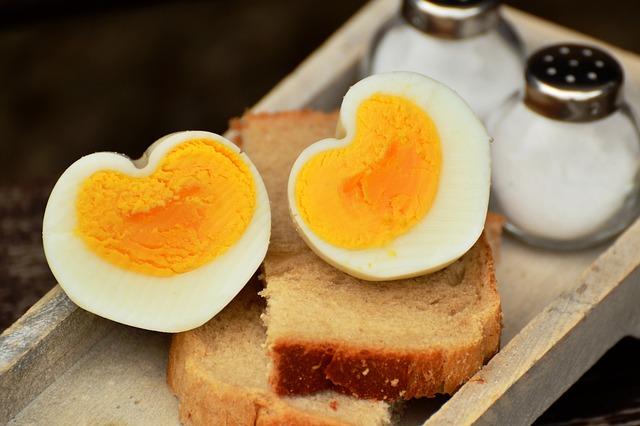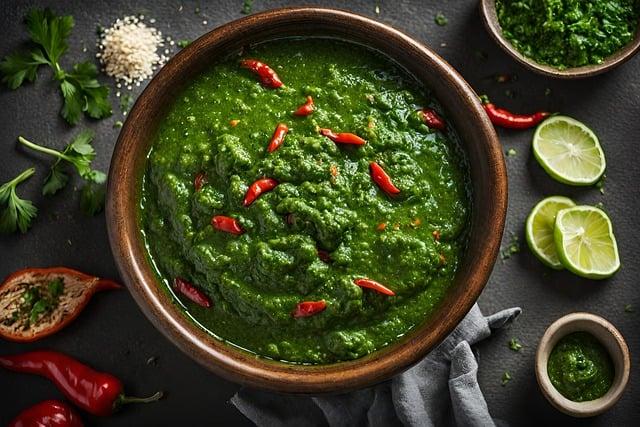Is Chicken Heart Good for You? The Nutrient-Packed Organ Meat!
Hey there, fellow foodies! Have you ever considered adding chicken heart to your diet? This often-overlooked organ meat is not only packed with nutrients, but it also offers a unique and delicious flavor profile. In this article, we’ll explore the health benefits of chicken heart and why you might want to start incorporating this nutrient-rich food into your meals. Let’s dive in and discover the goodness of this underrated organ meat!
Contents
- Is Chicken Heart a Superfood Packed with Nutrients?
- Discover the Health Benefits of Chicken Heart Organ Meat
- Incorporating Chicken Heart into a Balanced Diet
- Cooking Tips and Recipe Ideas for Chicken Heart
- The Importance of Iron and Protein in Chicken Heart
- Why Chicken Heart is a Budget-Friendly Nutrient Powerhouse
- Potential Risks and Precautions When Eating Chicken Heart
- Factors to Consider When Buying and Preparing Chicken Heart
- Final Thoughts
Is Chicken Heart a Superfood Packed with Nutrients?
Chicken hearts are often overlooked when it comes to organ meats, but they are actually a powerhouse of nutrients that can benefit your health in numerous ways. Despite their small size, chicken hearts are packed with essential vitamins and minerals that can support overall well-being.
Here are some key nutrients found in chicken hearts:
- Protein: Chicken hearts are an excellent source of protein, which is essential for building and repairing tissues in the body.
- Iron: Iron is crucial for transporting oxygen in the blood, and chicken hearts are a great source of this important mineral.
- Zinc: Zinc is important for immune function and cell growth, and chicken hearts contain a good amount of this mineral.
| Nutrient | Amount per 100g |
|---|---|
| Protein | 17g |
| Iron | 6.4mg |
| Zinc | 3mg |
So, next time you’re at the grocery store, consider picking up some chicken hearts to add to your diet – they’re not only delicious but also incredibly nutritious!

Discover the Health Benefits of Chicken Heart Organ Meat
Chicken hearts are a highly nutritious organ meat that often gets overlooked in favor of cuts like chicken breast or thighs. However, these tiny organs pack a punch when it comes to health benefits. Here are some reasons why you should consider adding chicken heart to your diet:
- Rich in Protein: Chicken hearts are a great source of high-quality protein, which is essential for muscle growth and repair.
- Packed with Vitamins and Minerals: These organ meats are loaded with nutrients like iron, zinc, and B vitamins, which are important for overall health and well-being.
- Low in Fat: Despite being an organ meat, chicken hearts are surprisingly low in fat, making them a lean and healthy protein choice.
| Nutrient | Amount |
|---|---|
| Iron | 3.9 mg |
| Zinc | 2.8 mg |
| Vitamin B12 | 1.3 mcg |
So, next time you’re at the grocery store, don’t overlook the humble chicken heart. This nutrient-packed organ meat can be a delicious and healthy addition to your diet!

Incorporating Chicken Heart into a Balanced Diet
Chicken heart is a lesser-known organ meat that is packed with essential nutrients that can benefit your overall health. Incorporating chicken hearts into your diet can provide a variety of vitamins and minerals that are important for a balanced diet.
Here are some key nutrients found in chicken hearts:
- Vitamin B12: essential for nerve function and the production of DNA
- Iron: important for oxygen transport in the body
- Zinc: supports immune function and wound healing
- Protein: necessary for muscle growth and repair
Whether you pan-fry, grill, or bake chicken hearts, they can be a versatile and flavorful addition to your meals. Try incorporating them into stir-fries, salads, or skewers for a nutrient-packed boost to your diet.

Cooking Tips and Recipe Ideas for Chicken Heart
When it comes to organ meats, chicken heart is a true powerhouse of nutrients that often gets overlooked. Packed with essential vitamins and minerals, chicken hearts are a delicious and budget-friendly option to incorporate into your diet. Here are some cooking tips and recipe ideas to make the most of this nutrient-packed organ meat:
- Marinate the chicken hearts before cooking to add flavor and tenderize the meat.
- Try grilling or sautéing the chicken hearts for a quick and tasty meal.
- Include chicken hearts in stir-fries, stews, or soups for a heart-healthy boost of nutrients.
For a flavorful recipe idea, try making a delicious Chicken Heart Skewers with a mix of herbs and spices. Simply skewer the marinated chicken hearts and grill them for a mouth-watering dish that is sure to impress your family and friends. Don’t be afraid to get creative in the kitchen with this nutrient-packed organ meat!

The Importance of Iron and Protein in Chicken Heart
Chicken heart is a nutrient-packed organ meat that is often overlooked in Western cuisine but is a popular delicacy in many other cultures. One of the key benefits of chicken heart is its high iron content, which is essential for the production of red blood cells and oxygen transport throughout the body. Iron deficiency can lead to fatigue, weakness, and decreased immune function, making it important to include iron-rich foods in your diet.
In addition to iron, chicken heart is also a great source of protein. Protein is crucial for building and repairing tissues, muscles, and organs in the body. A single serving of chicken heart can provide a significant amount of your daily protein needs, making it a great addition to a balanced diet. Whether grilled, sautéed, or stewed, there are many delicious ways to incorporate chicken heart into your meals and reap the nutritional benefits that this organ meat has to offer.

Why Chicken Heart is a Budget-Friendly Nutrient Powerhouse
Chicken heart is often an overlooked part of the chicken, but it is actually a superfood packed with essential nutrients. This budget-friendly organ meat is a powerhouse of vitamins and minerals that can benefit your overall health. Here are some reasons why chicken hearts should be a part of your diet:
- Rich in iron: Chicken hearts are a great source of heme iron, which is more easily absorbed by the body compared to non-heme iron found in plant-based foods.
- Packed with protein: Chicken hearts are high in protein, making them an excellent choice for those looking to increase their protein intake without breaking the bank.
- Abundant in B vitamins: Chicken hearts are a good source of B vitamins like B12, riboflavin, and niacin, which play a crucial role in energy production and metabolism.
Next time you’re at the grocery store, consider picking up some chicken hearts to add to your meals. They are not only affordable but also a nutrient-packed addition to your diet.

Potential Risks and Precautions When Eating Chicken Heart
When it comes to consuming chicken heart, there are some potential risks and precautions that you should be aware of. While this nutrient-packed organ meat can offer numerous health benefits, it’s essential to take certain factors into consideration to ensure you’re eating it safely.
Potential Risks:
- Cholesterol: Chicken heart is high in cholesterol, so individuals with cholesterol-related health conditions may want to consume it in moderation.
- Bacteria: Like all poultry, chicken heart can harbor bacteria such as Salmonella if not cooked properly. Make sure to cook it thoroughly to prevent foodborne illness.
Precautions:
- Cooking Temperature: Cook chicken heart to an internal temperature of 165°F to kill any harmful bacteria.
- Source: Purchase chicken heart from a reputable source to ensure it is fresh and free from contaminants.

Factors to Consider When Buying and Preparing Chicken Heart
When buying and preparing chicken heart, there are several important factors to consider to ensure you get the most out of this nutrient-packed organ meat. Here are some tips to keep in mind:
- Quality: Choose organically raised chicken hearts whenever possible to avoid hormones and antibiotics.
- Freshness: Look for chicken hearts that are a deep red color and have a mild, fresh odor.
- Storage: Store chicken hearts in the refrigerator for up to two days or freeze for longer shelf life.
- Preparation: Remove any excess fat or connective tissue before cooking to improve texture and flavor.
- Cooking methods: Chicken hearts can be grilled, sautéed, or added to stews and soups for a delicious and nutritious meal.
In summary, chicken heart is a nutrient-dense food that can be a valuable addition to your diet when prepared properly. Remember to consider quality, freshness, storage, preparation, and cooking methods to make the most of this underrated organ meat.
Final Thoughts
In conclusion, chicken hearts are a nutrient-packed organ meat that can provide a variety of health benefits. Not only are they a good source of protein, but they also contain essential vitamins and minerals like iron, zinc, and B vitamins. Incorporating chicken hearts into your diet can help support your overall health and well-being. So, next time you’re at the grocery store, consider picking up some chicken hearts and giving them a try. Your body will thank you for it!







